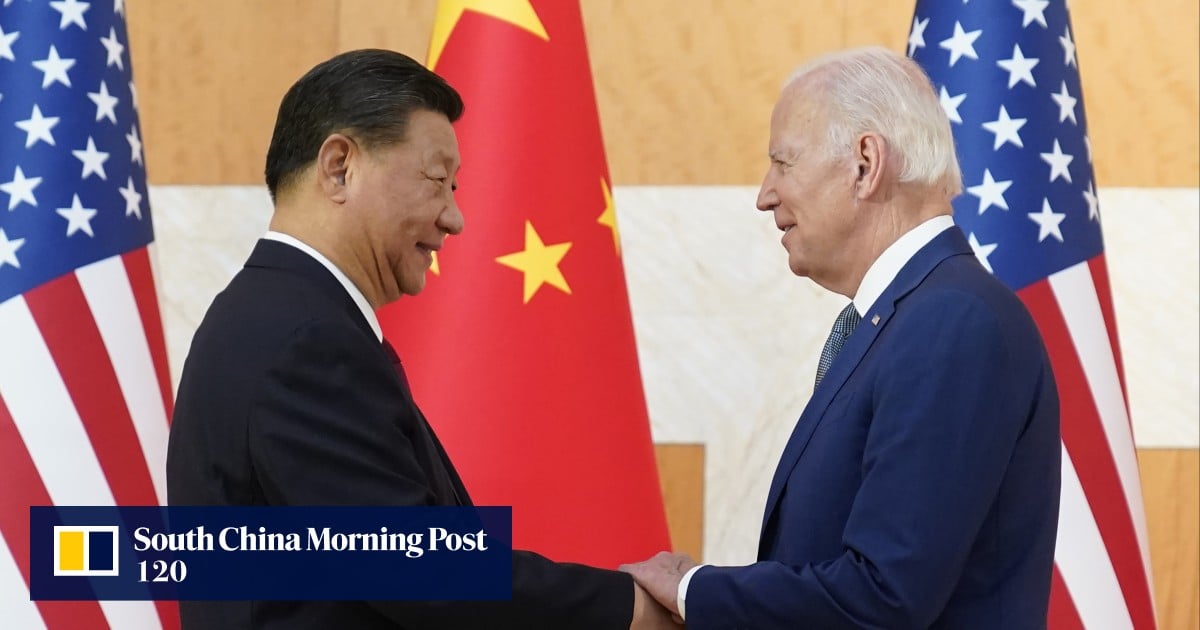36 countries have backed the proposal, committing to convene the following year to explore how to implement new regulations and enhance them.
In October, the Biden administration unveiled guidelines for endorsing state-of-the-art AI products. Under the new rules, these applications must receive certification from the federal government to prevent their misuse in creating genetic or nuclear weapons.
Despite tensions, analysts suggest that the joint initiative signifies the potential for collaboration between China and the US on technology regulations.
China has also made significant advancements in this domain. President Xi Jinping pledged to promote the coordinated and concentrated growth of emerging corporate sectors, with a focus on AI, during his address at the Communist Party national congress last year.
Furthermore, the Chinese People’s Liberation Army has been researching ways to integrate advanced AI technologies to enhance automated weapons systems for an extended period.
Experts consulted by the Post indicated that this issue was among the key priorities for the Biden-Xi meeting.
In light of the challenges posed by AI, maintaining human oversight in nuclear command and control is deemed essential, as highlighted by Bonnie Glaser, the managing director of America’s German Marshall Fund.
Oriana Skylar Mastro from Stanford University’s Freeman Spogli Institute for International Studies emphasized that one of the primary agreements between the parties should be to prevent automated nuclear command and control systems.
Discussions are ongoing about the potential for automation in these processes, with Mastro noting that human operators currently handle decision-making and release procedures.
Experts warn of the “extinction” threat posed by AI, likening it to the risks associated with nuclear warfare and pandemics.
While it is likely that Biden and Xi will agree to continue discussions on nuclear issues, prospects for formal nuclear arms control negotiations appear dim.
Mastro observed that China, with a significantly smaller arsenal compared to the US, is particularly sensitive about arms control efforts and is reluctant to engage in cooperation on this front.
Despite the positive reception of AI discussions, there seems to be a lack of consensus on broader military-related matters. China has expressed interest in resuming military dialogue with the US but maintains positions that diverge significantly from those of Washington.
The US-China joint statement is still pending, with diplomats grappling over language concerning conflicts in Israel and Ukraine.
Disagreements persist regarding the activities of the PLA Navy in the South China Sea, impacting neighboring countries like the Philippines and Taiwan, where national elections are slated for January.
Nevertheless, agreement has been reached on less contentious issues, including enhancing daily flights between the US and China to foster interpersonal collaboration, enforcing stricter oversight on laboratories in China involved in morphine production, and promoting joint research and the formulation of public health policies.






